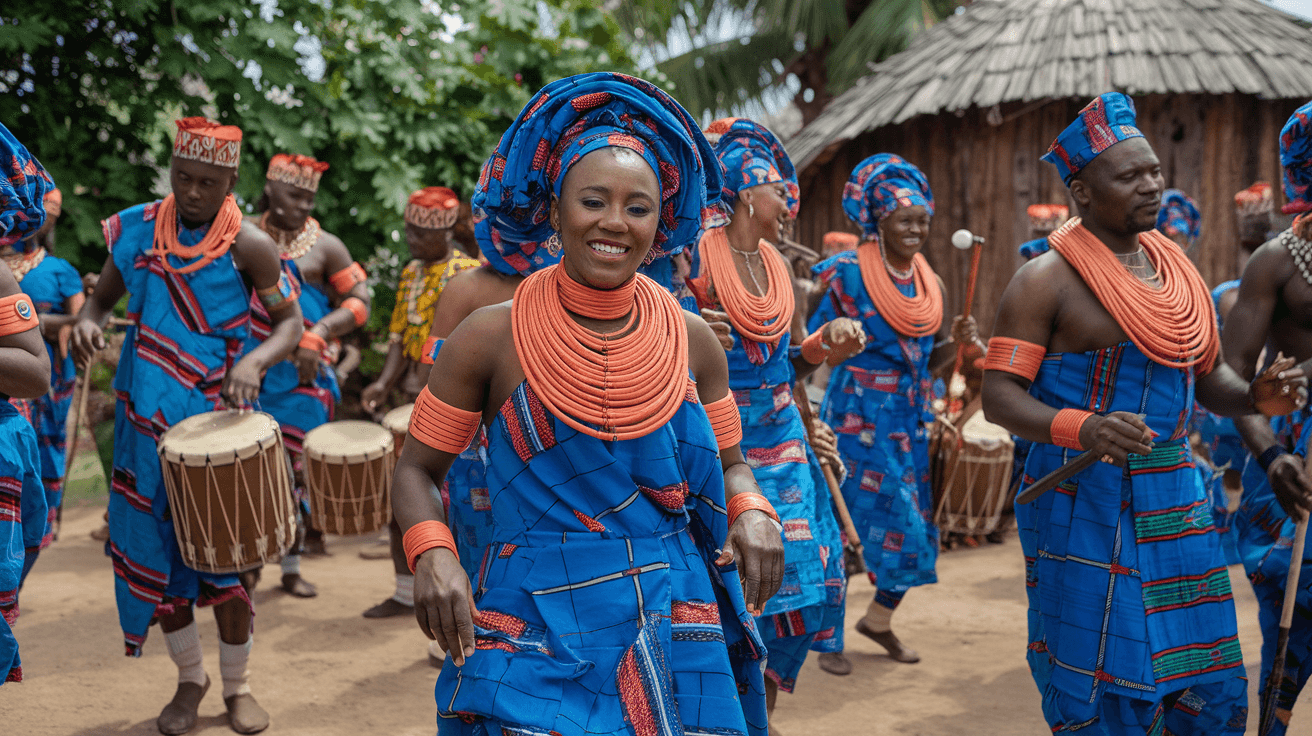The Efik people (who are also called and dominate in the Calabar area) are a people group in Nigeria. A sub-ethnic group of the Ibibio (the now Riverine Ibibio). They are found on the coast of the Bight of Biafra from the lower reaches of the Cross River (south of Cross River State) to the border regions of Cameroon.
Population 704 thousand people (2022, estimate); as well, in Namibia – 17 thousand people (in the Ndian Department of the South-West Province). Footnote Population in Ghana – 30 thousand people (predominantly around Accra area); Population in Sierra Leone – 3 thousand people (predominantly around Freetown area); Population in Equatorial Guinea – 3 thousand people (on Bioko island); Population in UK – about 10 thousand people; Population in USA – 5 thousand people. Estimates suggest that number to be around 800 thousand people (2022, estimate).
These clans can be further divided into sub-clans: Efik proper, Mbiabo, Adiabo, Itu, Kwa, Efut, Effiat, Isangele, etc. They speak the Efik language of the Lower Cross group of the Cross River branch of the eastern subfamily of the Benue-Congo family; this is frequently classified as a dialect of the Ibibio language.
The same system used with the Latin alphabet. It was used until the mid-20th century, and in the 1930s, the alphabetic Oberi-Okaime script based on both Nsibidi and Latin letters was used. The majority of Efik are Christains (Catholics and Protestants – Presbyterians), while the rest still keep the traditional religion or follow Afro-Christian churches and sects.
Per historians, the Efik are an Ibibio diaspora who absorbed several groups from the late 18th century onwards along the left bank of the Cross River. In pre-colonial times, the principal city and center of the Efik territory was Calabar (Efik), which for centuries had been one of the principal centers of the slave trade along the Gulf of Guinea coast, and the Efik language was the main trading language or lingua franca of the region. By the start of the 21st century, over 3 million people in Cross River State and in eastern Akwa Ibom State spoke conversational Efik; and nearly all Ibibio speakers understand it.
Modern Efik are farmers (yams, cassava, corn, vegetables, oil palm), trade (smoked fish, palm oil), fishing, hunting. Crafts include wood carving, making anthropomorphous masks, beadwork, weaving mats and baskets, minting imported copper trays, and smoking fish. Seasonal work involves plantations, mines, oil fields, and companies based in large cities. Even their own intelligentsia has been born.
They inhabit big, close-knit villages. The house is rectangular, built on top of a wooden frame, and has clay-coated walls and a roof made out of palm leaves (nowadays it is mostly built with corrugated iron). Men traditionally wear a loincloth; married women wear linen skirts to the knees.
Community is based on village and extended family social organization, and clan organization is retained. The kinship system follows the alignment of the father, and in marriage settlement, the partner takes the father’s locality. Social stratification developed among the Efik even before European colonialism and slavery became pervasive.
A special type of socio-political organization developed among the Efik on the basis of traditional extended family community – Warri (literally, “house, household”) during the slave trade, which acted as a trading house and a military detachment. Real and fictitious kinship (including slaves) linked Warri members.
They preserve magic, witchcraft, cults of ancestors and forces of nature. And it is tightly woven into the fabric of secret societies (Ekpe, etc.) The largest type of folklore are songs and fairy tales. Dance societies whose model is that of secret societies are common.
